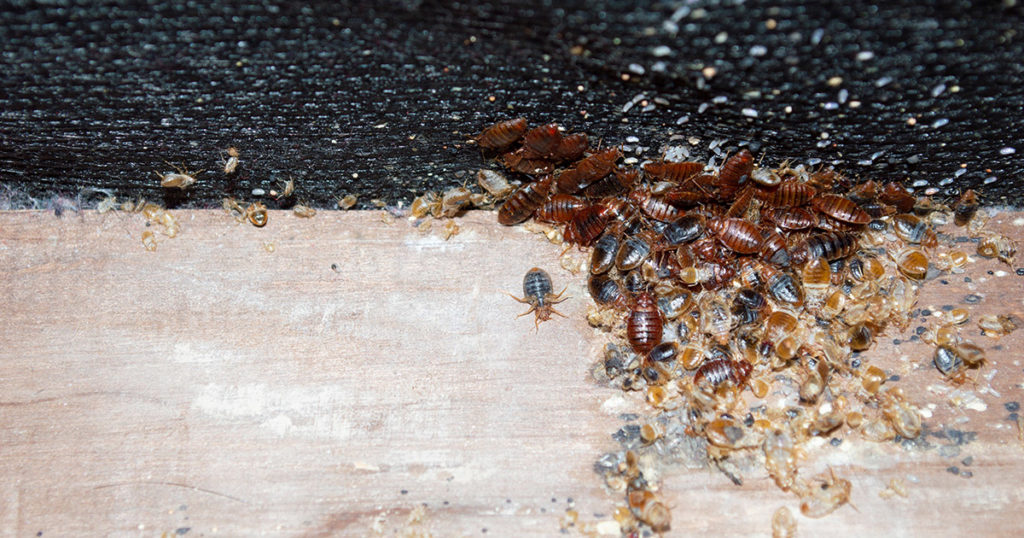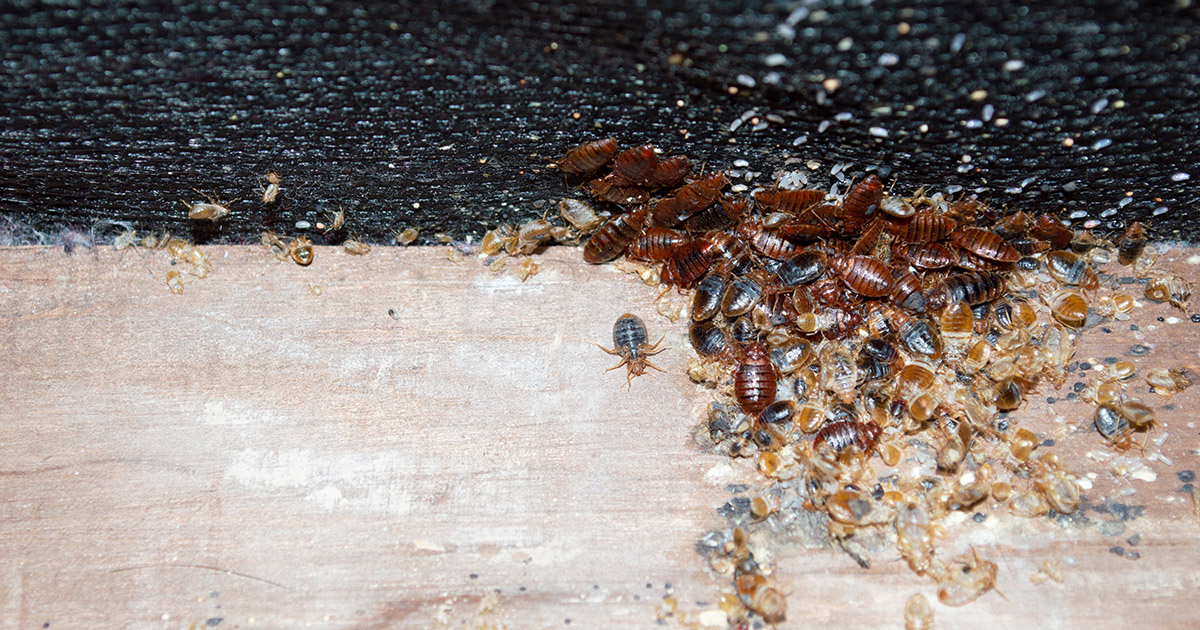Halloween is just around the corner and people are starting to think about werewolves, vampires, and all things spooky and scary. While all of this is in good fun, there are some blood-sucking creatures that are truly frightening for anyone that shares their home with them. Bed bugs are one type of creature that sucks blood and that no one wants to deal with. If you think you have bed bugs, read on to learn more about the bites you may be contending with, and how you can get rid of these critters.

What Do Bed Bug Bites Look Like?
Bed bug bites are often the first sign that a problem has developed. These bites are raised, red, and itchy and are most likely to appear after you have been sleeping. This is because bed bugs nest in the nooks and crannies of furniture, such as beds, and they come out at night to feed on blood hosts. Many people think that bed bug bites are always in a straight line or in a zigzag pattern, but this is not always the case.
People also do not react to bed bug bites in the same way. When a bed bug bites, they inject an anticoagulant into the host’s body and it is this substance the body will react to. The anticoagulant is also responsible for the size of the bite. People are also sometimes bitten several times by bed bugs and the intensity of the itching, redness, and swelling may either increase or decrease when a person suffers from multiple bites.
What are the Symptoms of Bed Bugs?
Many people think that if they have bed bugs, they will know it right away because they will see the bites. However, this is not always true. Bed bug bites on their own are not painful, and they can go unnoticed for hours, or even days. Bites are most likely to appear on skin that was exposed while sleeping, such as the neck, arms, shoulders, and upper body.
Some people will develop itchy, swollen, red welts the day after they are bitten, but it is not uncommon for it to take several days for the bites to develop. Some people never experience a reaction to bed bug bites, which can be helpful for daily life but does make it more difficult to spot an infestation. Some bed bug bites are itchy right away, while other times, a person will experience a burning sensation before developing a rash consisting of red bumps.
Bed bugs can become itchy, but it is important to keep scratching to a minimum. Bed bug bites must be kept clean and disinfected. If they bleed or become an open wound, an infection can set in and the complications from these infections are very dangerous.
Why Do Bed Bugs Bite?
Like fleas and ticks, bed bugs feed on blood and so, they need a warm-blooded host in order to survive. People and animals both provide the diet bed bugs need to feed. Many people think they were bitten by several bugs when they wake up with multiple bites, but that is not always the case.
Bed bugs need to find a blood vessel before they can start to feed, and that is not always easy. They may have to insert their mouthpart several times before finding a blood vessel, and each time they may leave a red and itchy bite behind. Bed bugs also feed on people while they are sleeping, and they are very sensitive to movement. If a person moves while the bed bug is trying to feed, the bug will move to another area of the body where they can get a meal without being disturbed.
Bed bug bites will look very similar to bites on people, but pet owners often think these are flea or mosquito bites. A bed bug may leave a cast on a pet, although they will not remain attached to them. If you see bed bug casts or feces or notice that your pet is agitated at night, it may be an indication that you have a bed bug problem.
Our Pest Control Experts are Not Scared of Bed Bugs
Bed bug problems are frightening, but at Pointe Pest Control, our expert pest control technicians know how to deal with them and get them out of your home once and for all. Call us today at (866) 633-1573 or contact us online to request a quote and to learn more about how we can help.




